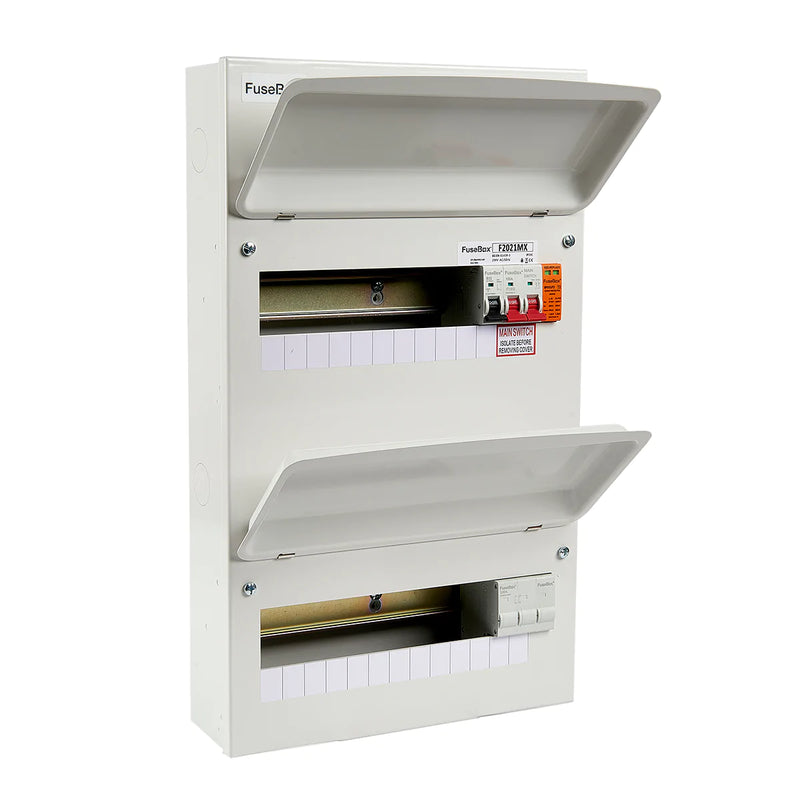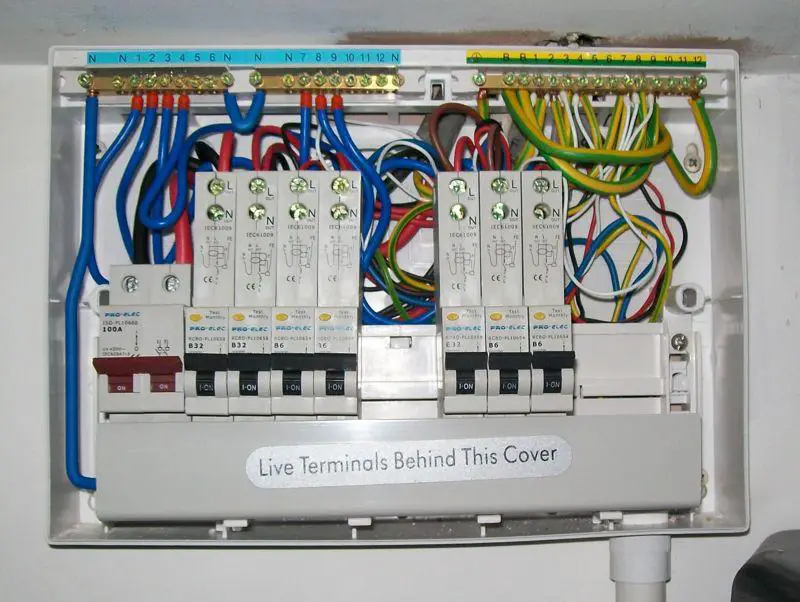Common Misconceptions About RCBO CONSUMER UNITS Explained
Common Misconceptions About RCBO CONSUMER UNITS Explained
Blog Article
The Role of Customer Devices in Efficient Power Management Solution
Customer systems are essential to effective power management systems, acting as the key distribution factors for electrical power within frameworks. By including breaker, they protect circuits from possible overloads, thus preserving safety and protecting against considerable interruptions. The arrival of wise innovations has actually additionally enhanced their performance, enabling real-time information tracking and nuanced energy consumption analysis. This assimilation not only optimizes energy usage yet also promotes the incorporation of renewable power resources, thereby promoting sustainable practices. Exactly how, after that, do these developments convert to tangible benefits in daily power administration?
Comprehending Consumer Devices

Recognizing the duty of consumer systems begins with recognizing their essential function in protecting electric systems. By isolating faults within specific circuits, customer devices protect against widespread interruptions and possible fire threats. This isolation is attained through the use of breaker that trip or integrates that strike when a fault is spotted, therefore removing the electric flow to the impacted circuit.
In addition, consumer devices help with the organized distribution of power, boosting the performance of power use. They enable the systematic administration of electrical tons, which can be particularly vital in business and commercial setups where demand can rise and fall significantly. Correctly conserved customer systems add to the longevity of electric systems and aid in reducing downtime brought on by electrical failures, eventually supporting the seamless operation of energy-dependent centers.
Smart Technologies Integration

An essential benefit of clever customer units is their ability to take advantage of progressed formulas and maker understanding for predictive analytics. This permits preemptive modifications based on usage patterns, weather report, and other variables, significantly raising total effectiveness. Smart customer systems facilitate need response programs, where energy use can be dynamically readjusted during peak periods to maintain the grid and reduce prices.
The assimilation of renewable resource resources, such as solar and wind, is also structured through clever customer systems. By wisely handling the intermittency of these resources, these devices make certain a well balanced and trustworthy power supply. Additionally, clever consumer units enhance individual interaction by supplying comprehensive understandings and remote capacities through mobile applications, promoting an extra proactive strategy to energy preservation and sustainability.
Surveillance Power Intake
Building on the abilities of clever innovations integration, keeping track of power usage comes to be an important focus within power management systems. Effective monitoring acts as the foundation for determining energy ineffectiveness and executing rehabilitative steps. By leveraging sophisticated metering framework (AMI), real-time data on power usage can be gathered at granular degrees, providing useful insights into intake patterns and peak demand periods. This data-centric strategy enables both consumers and energy managers to make informed choices aimed at minimizing waste and boosting total performance.
Smart meters and Net of Points (IoT) devices play a crucial function in this tracking process. These devices can track power use in real-time, sending data to central systems for evaluation. The gathered information is after that refined via advanced algorithms to find anomalies, predict future intake, and suggest optimization techniques. In addition, cloud-based services use scalable systems for keeping and evaluating large datasets, promoting remote monitoring and control.
The combination of these technologies not only empowers consumers with detailed details regarding their energy use but likewise sustains utility carriers in managing tons click this circulation better. Eventually, continuous and exact surveillance is vital for accomplishing energy effectiveness, cost financial savings, and sustainability objectives within energy monitoring systems.
Optimizing Device Usage

One effective method includes identifying top and off-peak hours to change energy-intensive tasks, such as laundry or dishwashing, to times when energy demand is lower. This not just minimizes strain on the grid but likewise exploits on reduced power tolls. Furthermore, integrating artificial intelligence formulas enables anticipating upkeep, ensuring appliances operate at optimal effectiveness and prolonging their life-span.
Power monitoring systems can additionally incorporate user-specific preferences and habits to tailor home appliance use routines. Smart lights systems can readjust brightness based on occupancy and natural light accessibility, while Heating and cooling systems can maintain convenience degrees without excessive power use.
Encouraging Sustainability
Advertising sustainability within energy management systems includes not just improving efficiency but also promoting eco responsible techniques. Customer units are integral to this process, as they give real-time information and control devices that allow customers to keep an eye on and reduce their power usage. By leveraging innovative technologies, consumer systems can determine energy-saving possibilities and promote the combination of renewable resource resources like solar and wind power.
One vital element of promoting sustainability is educating consumers on the benefits of liable energy use. With thorough insights supplied by consumer units, users can make enlightened decisions that reduce their carbon footprint. For circumstances, these devices can suggest ideal times for running high-energy appliances based on grid demand and renewable resource accessibility, thereby minimizing dependence on nonrenewable fuel sources.
Additionally, customer systems support the adoption of clever grid innovations, which enhance the overall performance and integrity of energy circulation. By enabling two-way communication in between consumers and utility his explanation companies, these systems can dynamically adapt to energy demands, reducing waste and promoting using lasting energy practices.
Conclusion
Consumer systems, as indispensable elements of power management systems, considerably boost electric safety and performance within structures via circuit defense and clever modern technology combination. Real-time information surveillance and analysis facilitated by these units maximize energy intake and home appliance usage. Furthermore, the unification of sustainable power resources advertises sustainable techniques, contributing to reduced overall energy consumption and lower carbon footprints. Consequently, consumer units play a critical function beforehand both energy effectiveness and environmental sustainability.
Breakthroughs in smart modern technologies have actually revolutionized the abilities of power monitoring systems, particularly via the combination of smart consumer systems.Structure on the capabilities of smart innovations integration, checking power consumption ends up being an essential focus within energy management systems.Effective device usage optimization is a crucial part of power management systems, intending to boost effectiveness and lower unnecessary energy intake.Customer units, as integral parts of energy administration systems, significantly improve electrical security and effectiveness within structures through circuit protection and clever technology integration. Additionally, the unification of eco-friendly energy resources advertises lasting practices, adding to minimized total energy intake and lower carbon impacts.
Report this page